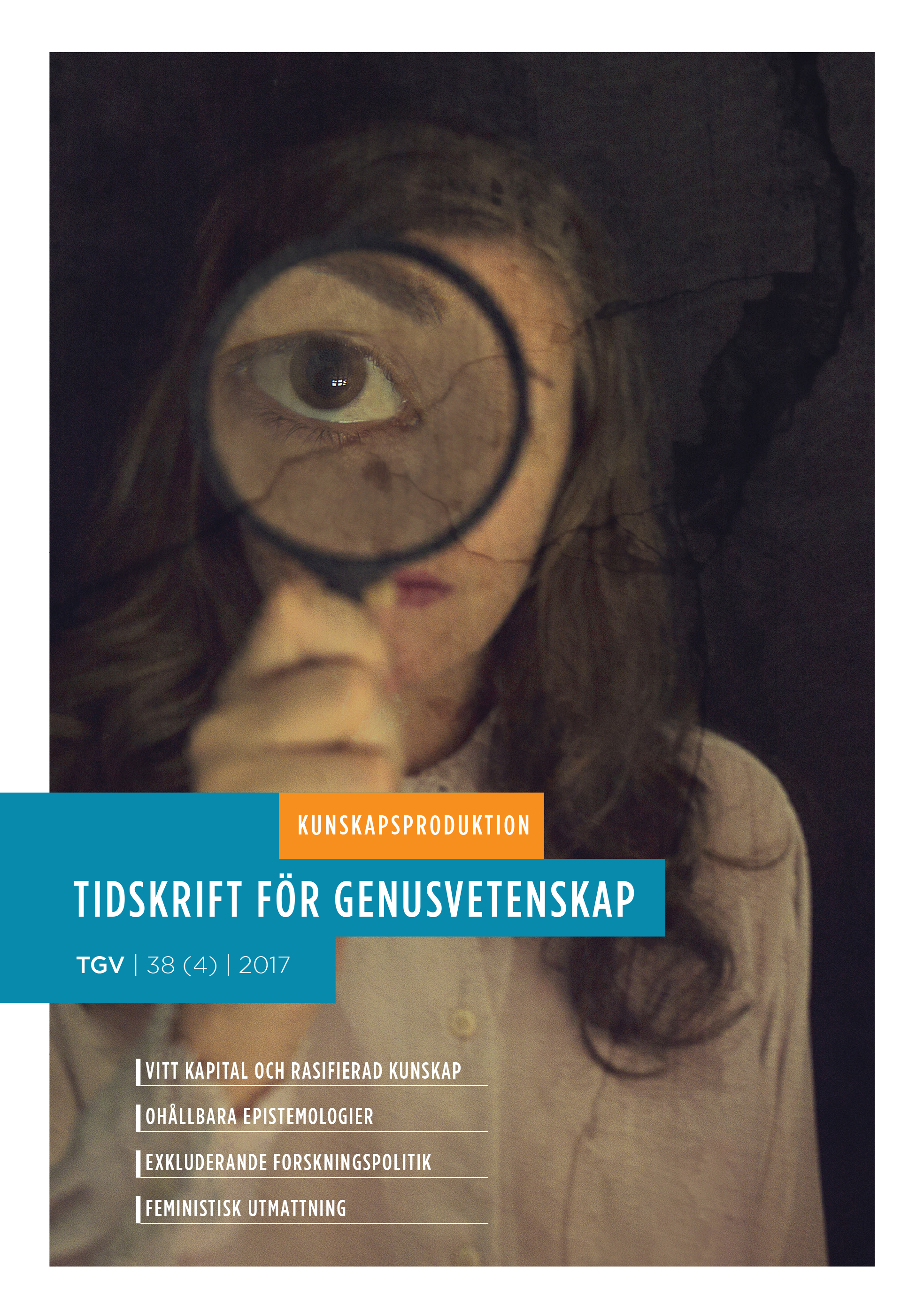”Man kan känna utmattningen i luften”
(Sinnes)stämningen på det nyliberala universitetet och dess påverkan på feministiska forskare
DOI:
https://doi.org/10.55870/tgv.v38i4.2887Nyckelord:
akademi, genusforskning, nyliberalism, produktivitet, arbete, entografiAbstract
Science and higher education have, in many countries, undergone profound changes in recent decades, often leading to the institutionalisation of academic cultures of performativity. These cultures reconceptualise academic work as labour which must aim to achieve the highest possible productivity and profitability, and whose quality can be assessed on the basis of amount of outputs and income generated. In several contexts, these changes transformed longstanding discourses about which kinds of scholars are “excellent” and which disciplines produce valuable knowledge. In this article, I examine how the institutionalisation of performative academic cultures affects the work and lives of scholars in women’s, gender, feminist studies (WGFS), often in paradoxical ways. Drawing on an ethnography of Portuguese academia (conducted between 2008 and 2016), I show that the emphasis on productivity can create possibilities for WGFS, but also make much WGFS work impossible. Many WGFS scholars have been able to use performative academic cultures to expand the space for WGFS. At the same time, however, they are finding several epistemic activities increasingly difficult, if not impossible, to sustain – that is, reading, thinking, peer reviewing, attending academic events – due to intensifying workloads and escalating productivity expectations. This produces a mood of exhaustion, depression and alienation, particularly among women, often disproportionately saddled with the demanding pastoral work that neoliberal universities require but do not reward. I examine this mood and its impacts, arguing that the performative university is both toxic and stimulating, both destructive and seductive, for WGFS. I draw on this paradox to call for debate in WGFS about our ambivalent personal investments in work, our collective working cultures, and our collegial working relationships with each other.
Nedladdningar
Downloads
Publicerad
Referera så här
Nummer
Sektion
Licens
Författaren/författarna behåller copyright till verket.





